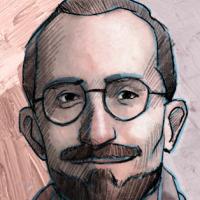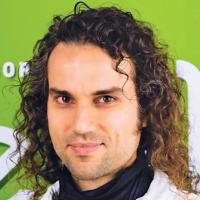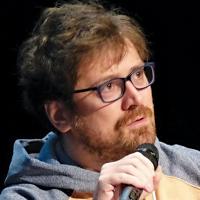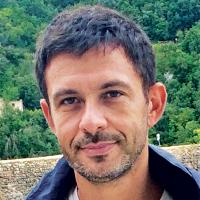This project seeks to articulate a formal account of organizational purposiveness or self-determination that is conceptually rigorous and theoretically useful for capturing the temporal balance between stability and variation in living systems. In particular, they will develop an organizational approach that contrasts with prior approaches in that it anchors the conditions of viability for organisms in terms of the propensity for living systems to show ubiquitous variation. A key output of this work will be a novel framework of purpose in living systems that integrates their organizational stability and capacity to evolve via variational mechanisms to advance biological theorizing.

Matthieu Barbier
(Re)Conceptualizing Function and Goal-Directedness
Open-ended evolution and organizational closure
Subaward Principal Investigator
Matthieu searches for simplicity in macroscopic phenomena in theoretical ecology, often relying on ideas from statistical physics. He graduated in theoretical linguistics and physics, pursued a PhD in the latter in Paris, and explored various interfaces with economics and ecology in Incheon, Princeton and Moulis. He co-founded the interdisciplinary nonprofit Institut Natura e Teoria en Pirenèus, and is now employed as a researcher at the Plant Health Institute in Montpellier, France. His variegated experiences have left him with two major archetypes for how he thinks about intriguing phenomena in life, cognition and society: from physics, the duality and equivalence between causal (force-based) and acausal (variational) explanations; from linguistics, the separation of concerns between historical (etymological) and functional (grammatical or semantic) subfields. He hopes to use these archetypes to better understand, and formalize mathematically, the equivalences and tensions that he has encountered between various modes of scientific explanation of biological phenomena.

Arnaud Pocheville
(Re)Conceptualizing Function and Goal-Directedness
Open-ended evolution and organizational closure
Subaward Principal Investigator
Arnaud Pocheville is a theoretical biologist and philosopher of science whose research concentrates on issues in evolutionary biology, including topics such as the structure of evolutionary time and the notion of biological information. His aim is to clarify current theoretical controversies (e.g. between niche construction theory and the extended phenotype perspective), such as by showing that the competing perspectives implicitly posit different hypotheses about the time-scale separability of the diverse biological phenomena they claim to consider (mostly development, ecology and evolution). He completed his PhD on the ecological niche concept at the laboratory Ecology and Evolution, École Normale Supérieure, Paris and held postdoctoral research positions in Theory and Methods in Biosciences group at the University of Sydney and at the Center for Philosophy of Science, University of Pittsburgh. He is currently a permanent research fellow at the French National Centre for Scientific Research (CNRS).

Maël Montévil
Agency and Directionality in Development, (Re)Conceptualizing Function and Goal-Directedness, Higher-Level Agency and Directionality in Ecology and Earth Science
An organizational account of ecological functions, Intrinsic purposiveness and the shaping of development, Open-ended evolution and organizational closure
Maël Montévil is chargé de recherche in CNRS, in République des savoirs, USR 3608, École Normale Supérieure. He is a theoretical biologist working at the crossroad of experimental biology, mathematics, and philosophy. He developed the framework of constraints closure and theorized biological historicity and its implications for theory and modelization with which to study current issues such as endocrine disruptors and, more generally, anthropocene's disruptions and our response to them. Montévil is the author of more than twenty-five peer-reviewed articles and a monograph with Giuseppe Longo: Perspectives on organisms.

Matteo Mossio
Agency and Directionality in Development, Evolutionary Origins and Transitions of Agency, Higher-Level Agency and Directionality in Ecology and Earth Science
An organizational account of ecological functions, Intrinsic purposiveness and the shaping of development, Integration and individuation in the origin of agency, Open-ended evolution and organizational closure
Matteo Mossio is Chargé de recherche (tenured) at the Centre National de la Recherche Scientifique (CNRS), full member of the IHPST (https://ihpst.pantheonsorbonne.fr/), Paris, France. Matteo Mossio works mainly in philosophical and theoretical issues related to biological autonomy. He published several articles in international philosophical and scientific journals as well as chapters in collective volumes. In 2015, he published (together with Alvaro Moreno) a full monograph on the theory of autonomy (https://www.springer.com/gp/book/9789401798365). Matteo Mossio obtained funding for and took part in numerous research projects in France and abroad. He attended or organised over 90 national and international seminars, workshops, symposia and summer schools, and served as a reviewer for many international philosophical and scientific journals. He supervised several PhD and Master students. He regularly teaches in the Philosophy Program of the University of Paris 1 Panthéon – Sorbonne.
